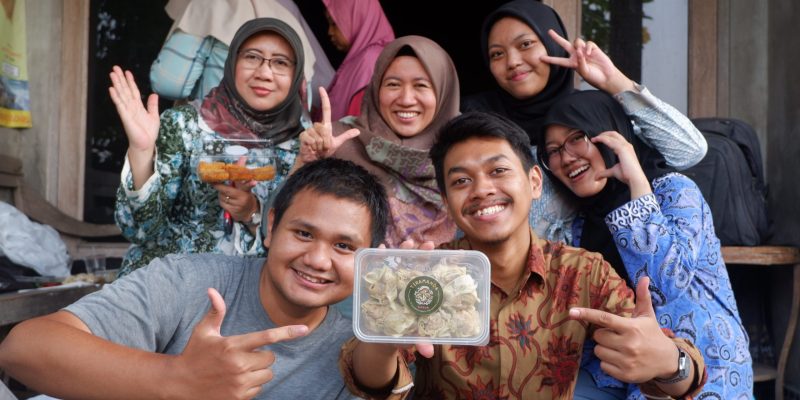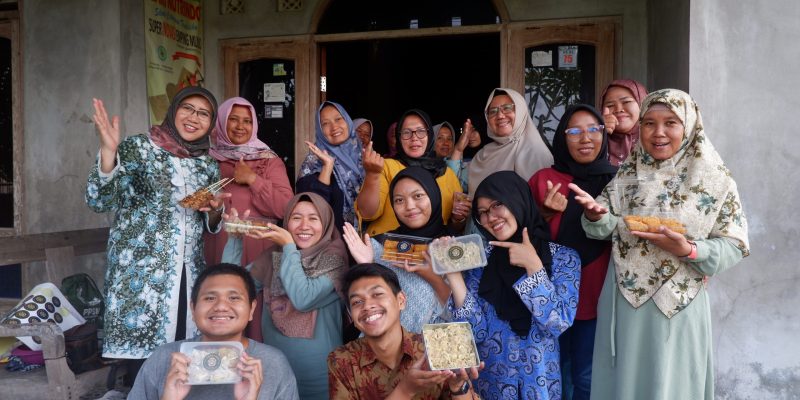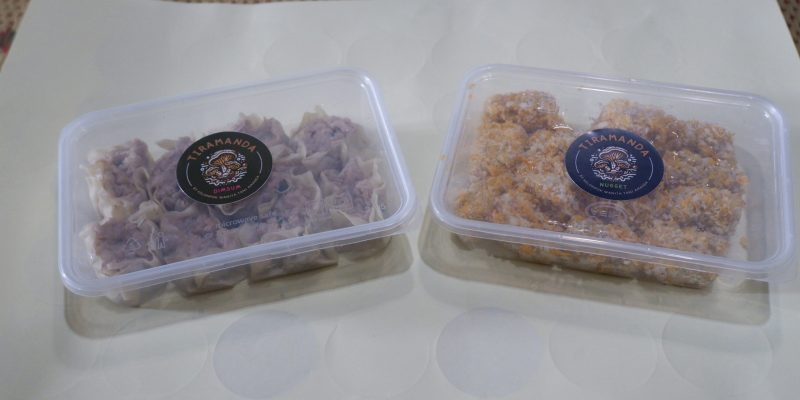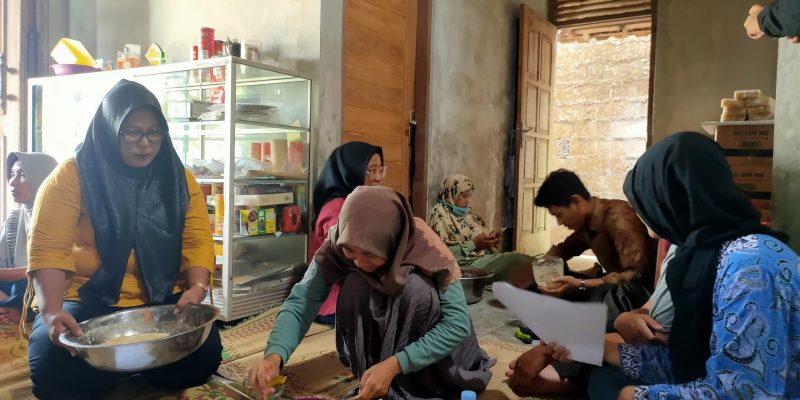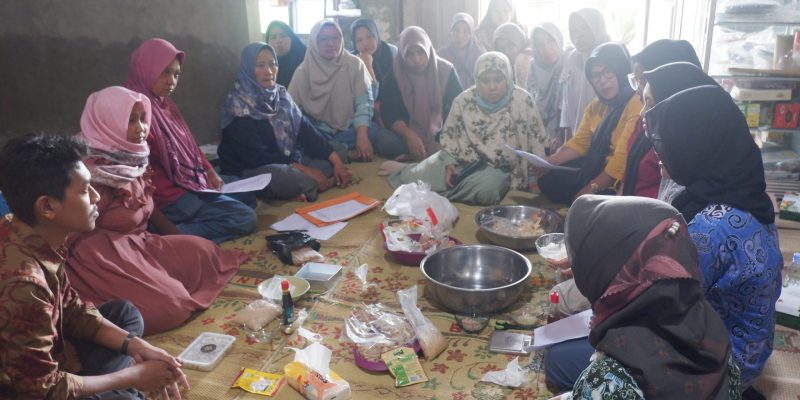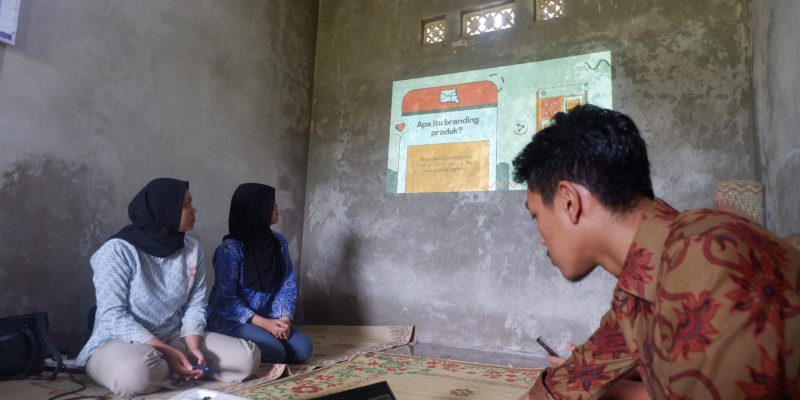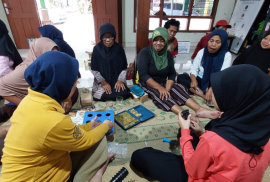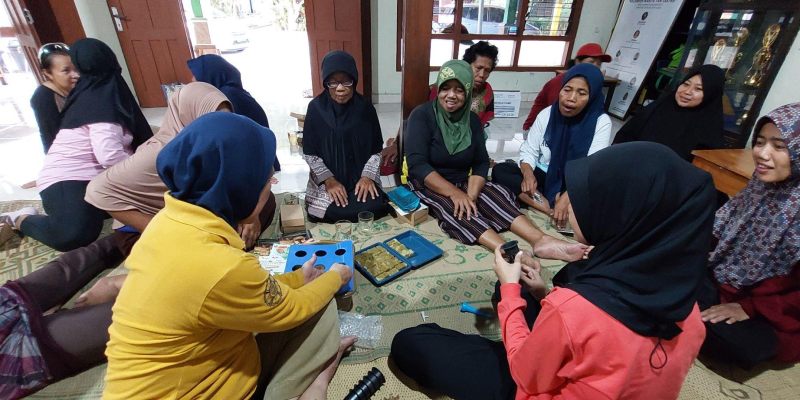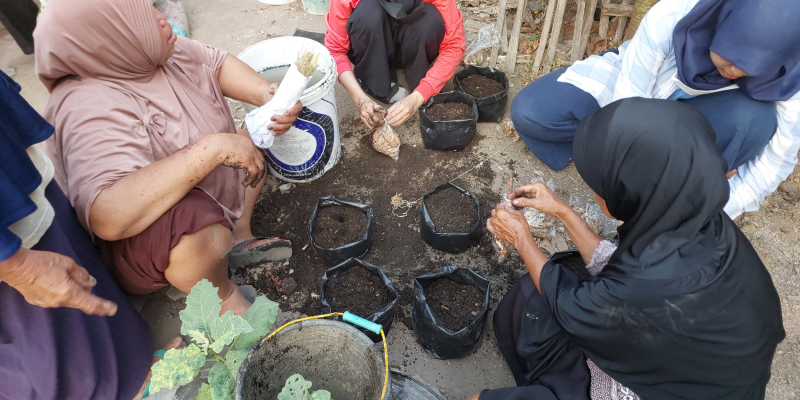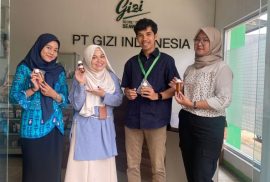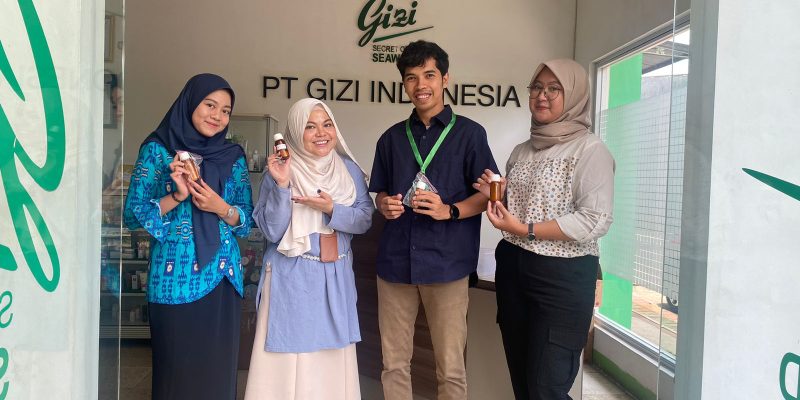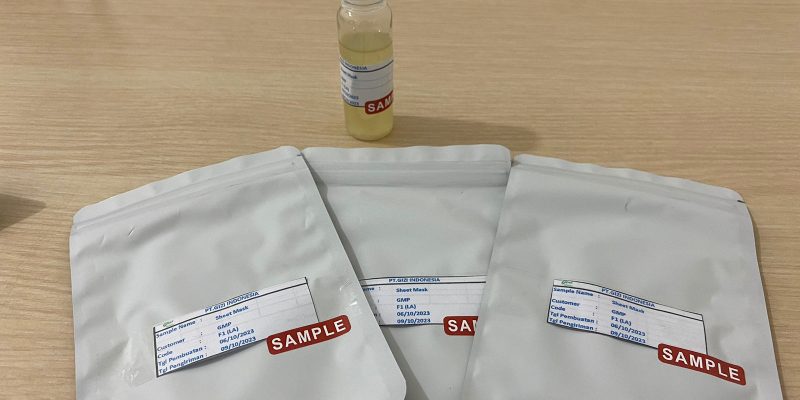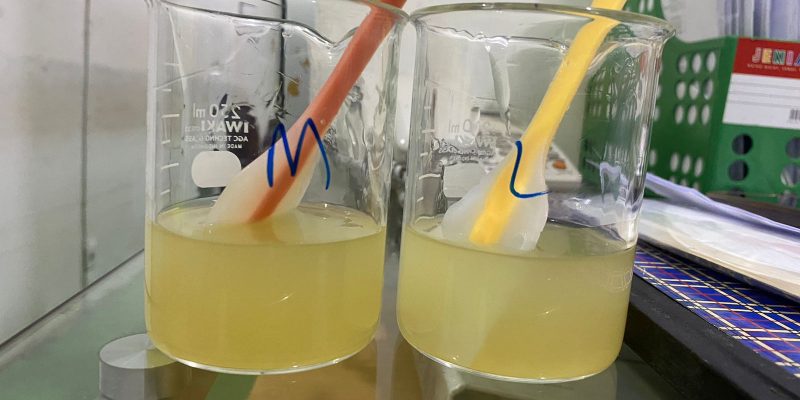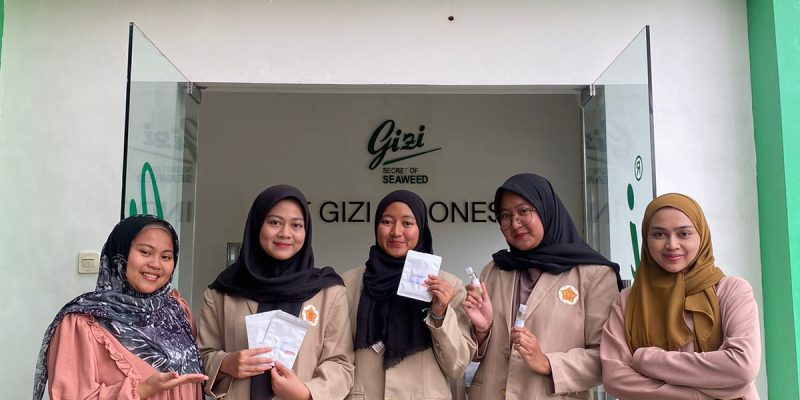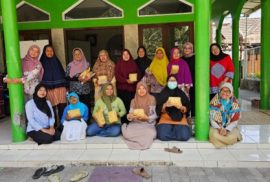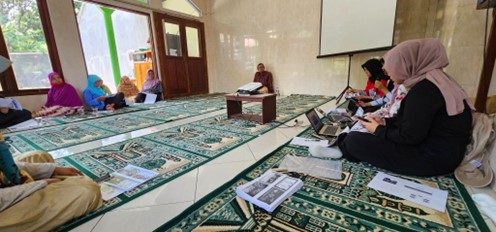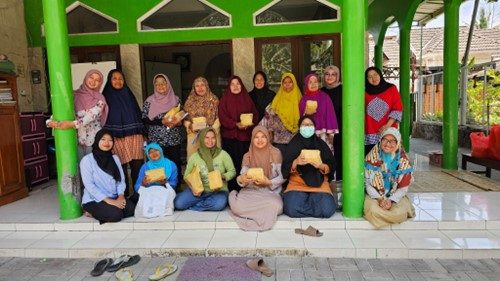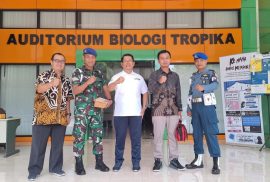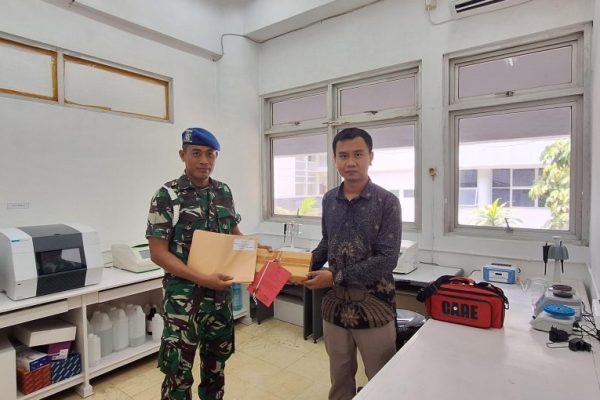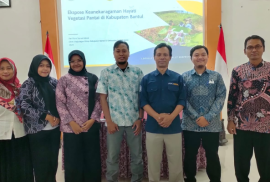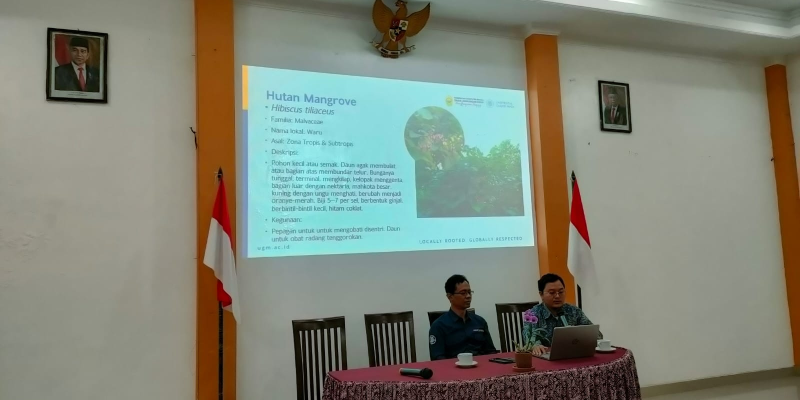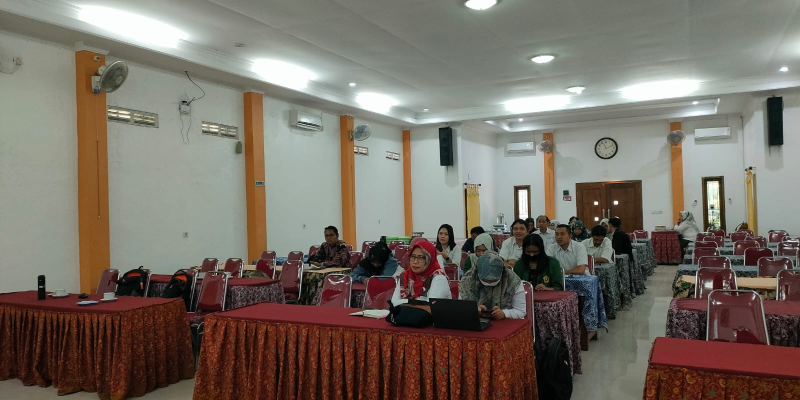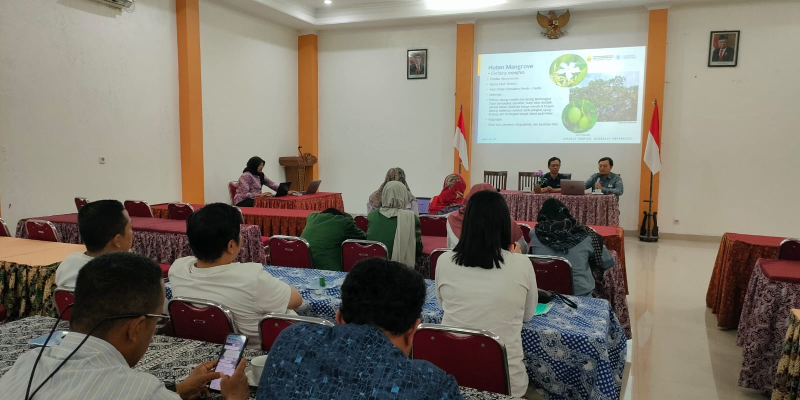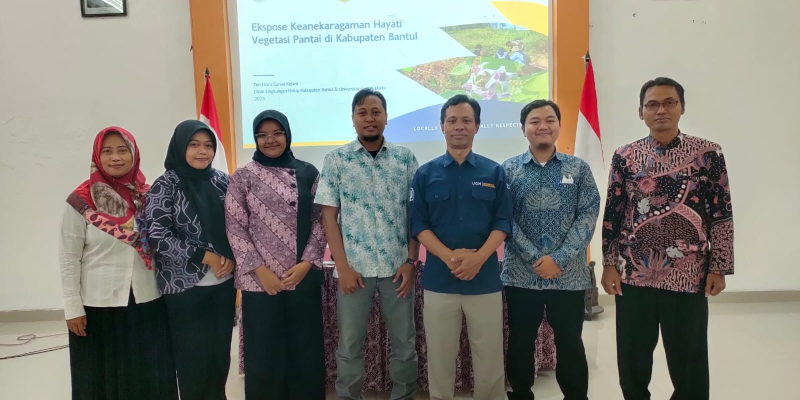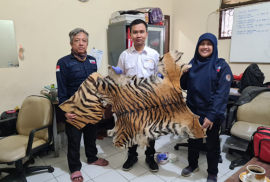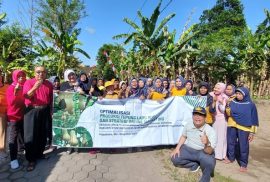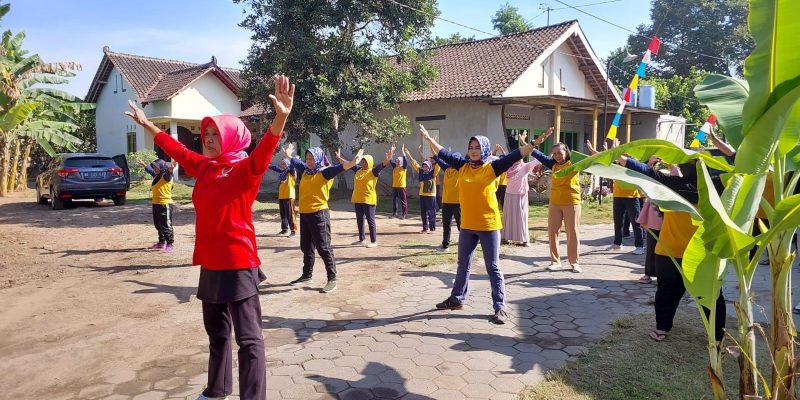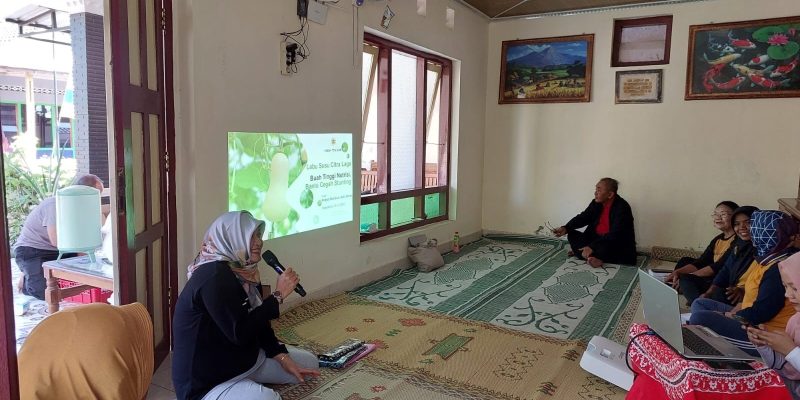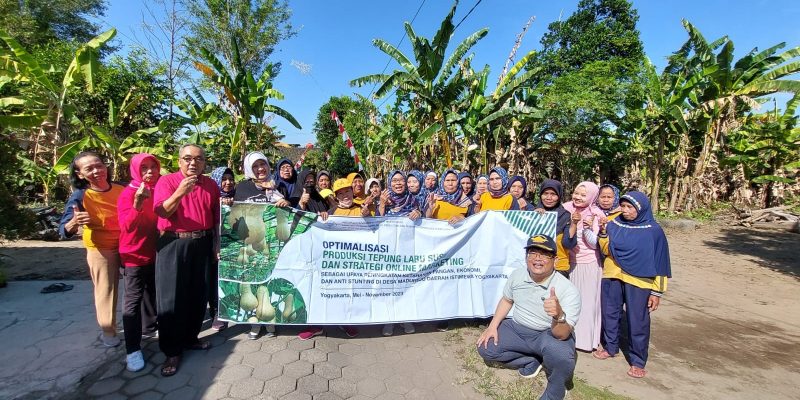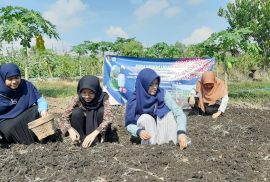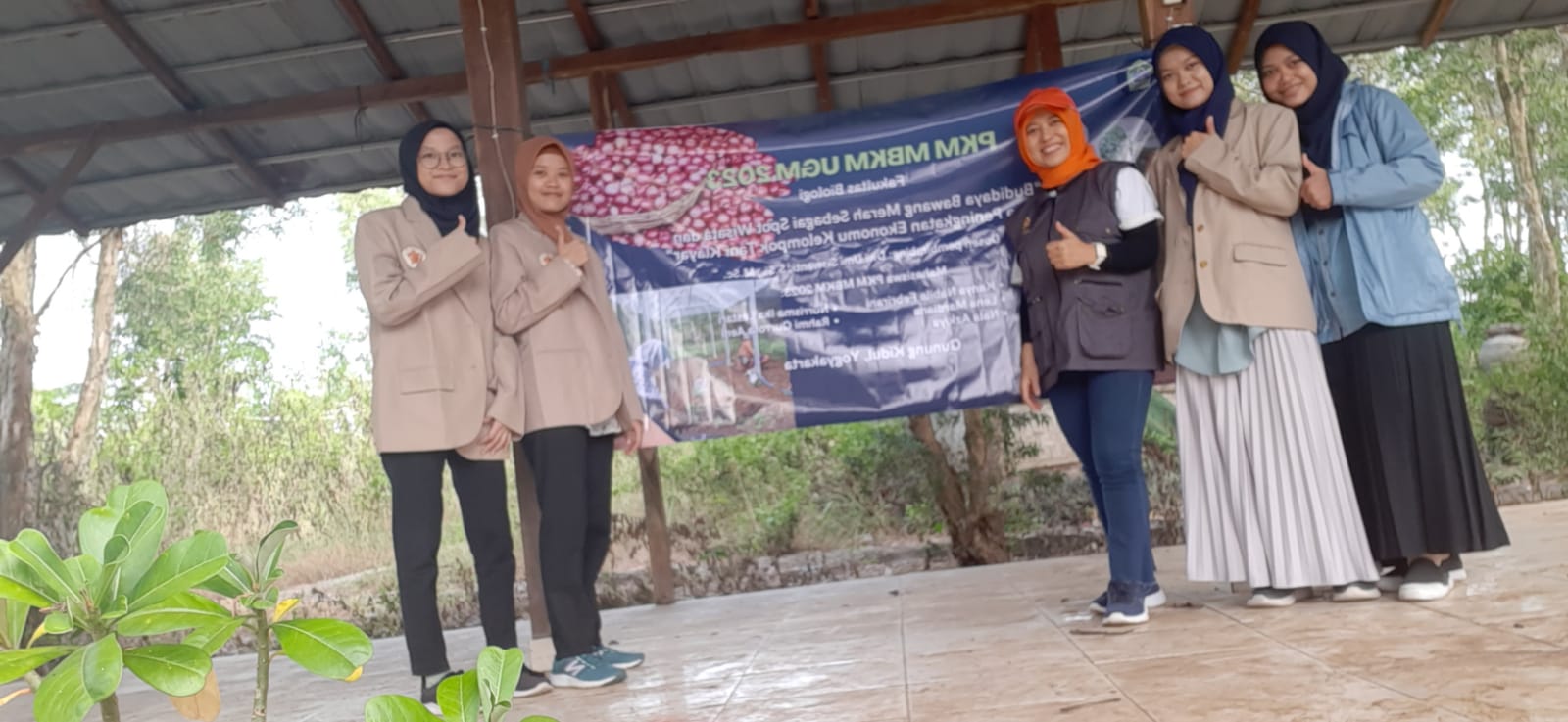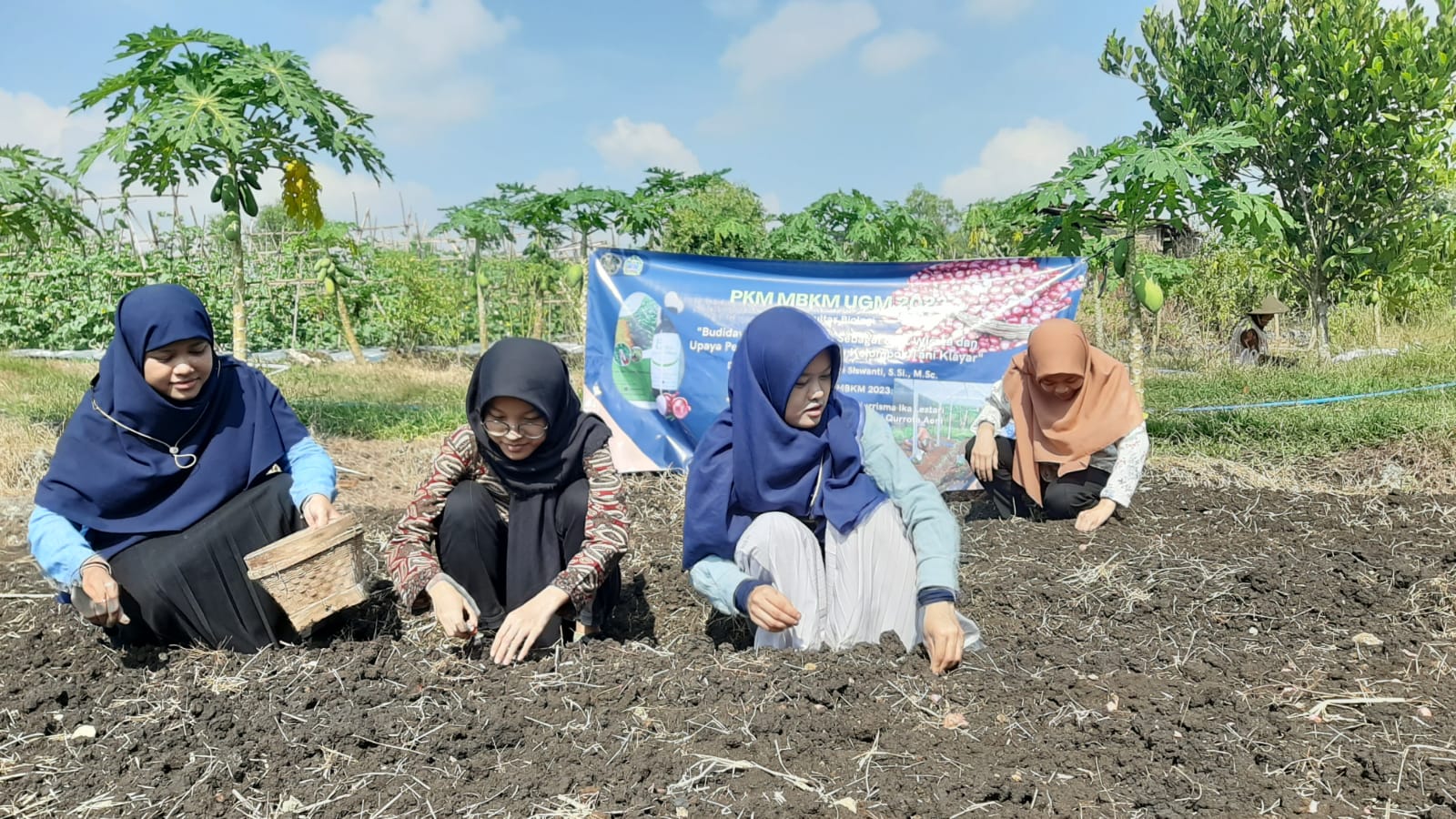On Sunday, October 15th, 2023, the team of Merdeka Belajar Kampus Merdeka-Pengabdian kepada Masyarakat (MBKM-PkM) 2023 Faculty of Biology, Universitas Gadjah Mada, conducted another socialization activity for the residents in Pajangan, Wedomartani, Ngemplak, Sleman, Yogyakarta, regarding the production of liquid organic fertilizer (LOF) and eco-enzyme. This socialization was organized to encourage the community to manage organic waste into something beneficial, such as liquid organic fertilizer (LOF) and eco-enzyme. The speakers for this socialization were the MBKM-PkM 2023 team, consisting of five undergraduate students of Faculty of Biology, Unviersitas Gadjah Mada, class of 2020, they were Arba’ Ramadhani Artik, Arneta Yuvita, Ester Dewanti Yovita Wardani, Fadiah Sri Rahayu, and Zidni Meirizka Utami, under supervision Dr. Ardaning Nuriliani, S.Si., M.Kes. and the partner mentor Ms. Nurini Aru Sudarsi. The MBKM-PkM 2023 team conducted the socialization with the theme “Caring for the Earth Starts from Our Kitchen.” This theme included two main topics: liquid organic fertilizer and eco-enzyme. The first topic covered the importance of macro and micro nutrients for plants, the definition of organic and inorganic fertilizers, the differences between organic and inorganic fertilizers (chemical), the advantages and disadvantages of organic and inorganic fertilizers, the production process of liquid organic fertilizer, as well as its application. The second topic explained the concept of eco-enzyme, its advantages and disadvantages, its benefits, the production process of Eco-enzyme, as well as its application.
Effective management of organic waste is crucial at present, given the issues related to the limited space for waste disposal at the Piyungan Final Disposal Site in the Special Region of Yogyakarta. Producing liquid organic fertilizer (LOF) and eco-enzyme is one way to manage organic waste such as food scraps, vegetable waste, fruit waste, and leaves, turning them into something beneficial for the environment. Liquid organic fertilizer (LOF) can be used to nurture plants without worrying about chemical effects on them. Meanwhile, eco-enzyme can serve not only as a fertilizer component but also as a detergent or cleanser and pest control for plants. The production of LOF and Eco-enzyme doesn’t require significant costs; it mainly relies on organic waste from the kitchen, water, molasses solution (brown sugar, palm sugar, coconut sugar), and EM4 solution.
This socialization received a positive response and enthusiasm from the residents of Pajangan Hamlet who actively participated in the discussion sessions with the speakers. It is hoped that the socialization by the MBKM-PkM 2023 team will raise awareness and engagement, particularly among the residents of Pajangan Hamlet, in environmentally friendly practices by managing kitchen and organic waste and turning them into something useful for the environment. (SDGs 3).
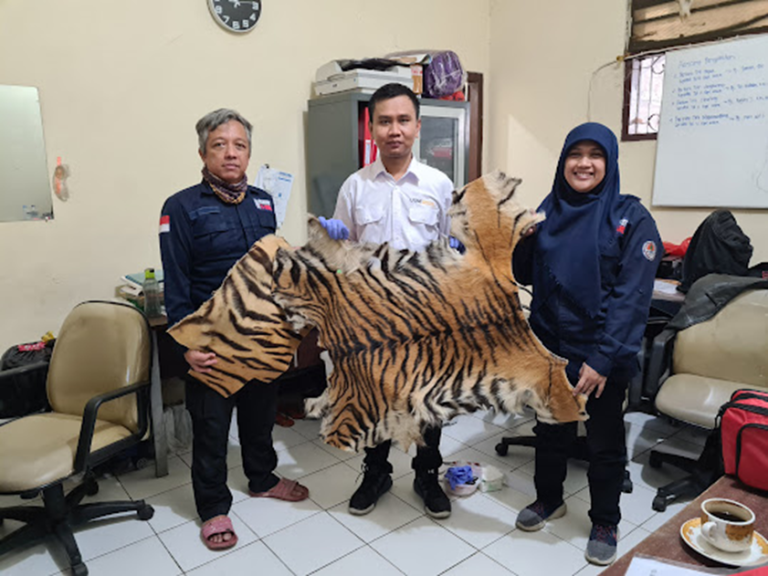
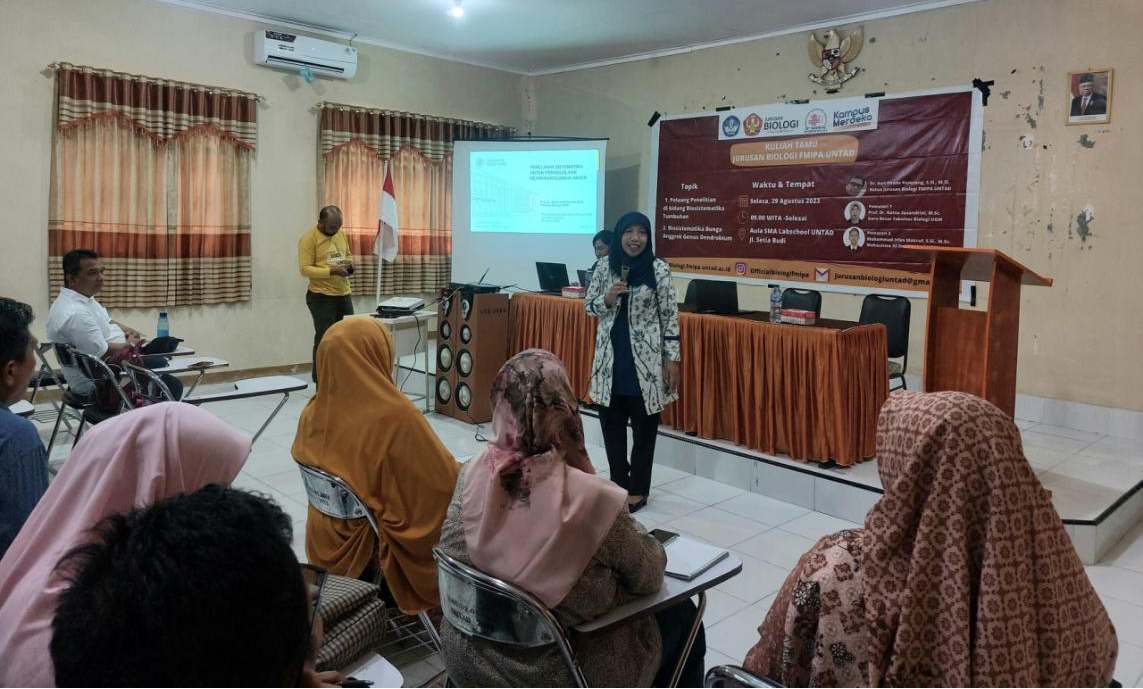
On Saturday, June 3, 2023, the PCM MBKM-2023 team that includes students of Faculty Biology UGM, namely Rahmi Qurrota Aeni, Nala Azkiya, Lena Mardiana, Nurrisma Ika Lestari, and Kanya Nabila Febrirani with supervisor Mrs. Dwi Umi Siswanti, S. Si., M.Sc. has carried out the implementation of Independent Learning Campus Merdeka (MBKM) activities in the Klayar Tourism Village. This program was carried out to improve the economy of the Klayar Farmer Group in Kedungpoh Village, Nglipar Gunung Kidul, together with Mr. Didik Purnomo as the MBKM partner. This activity continues last year’s community service program on organic chrysanthemum cultivation. However, this year, we use shallots as plants to be cultivated.
This activity began with consolidation with Mr. Didik Purnomo to prepare for needs in organic shallot cultivation. After that, the Pkm MBKM-2023 student planted and trained for planting shallots. During the shallot planting training activities, students were guided by Mr. Didik and the Klayar Farmers Group to grow in the fields and the greenhouse. Students are taught how to plant shallots starting from preparing the seeds to how to produce them. This activity will continue with other programs, such as outreach to the Klayar Farmers Group regarding shallot processing to increase the community’s economic value.


